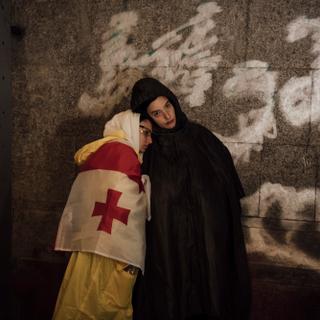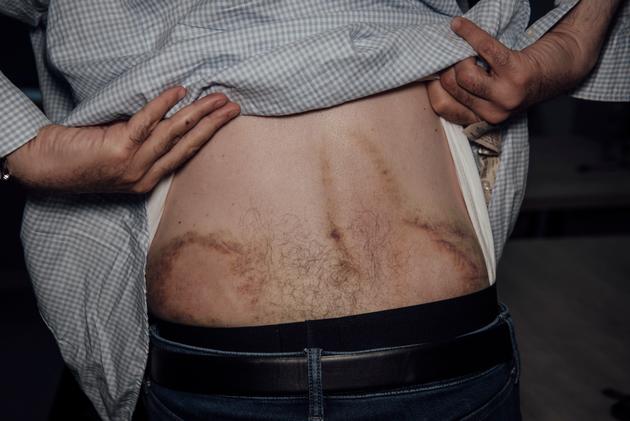


In Georgia, 'the government is at war with its own people'
FeatureRepression has reached an unprecedented level in the country. Physical attacks and threats are multiplying against opponents of the 'foreign influence' law.
It all began with a strange phone call. At 4:00 am on May 8, Gia Japaridze, a professor at the University of Georgia in Tbilisi, received a call from Chad. "We're going to kill you, bastard! Are you against this law? Then you're against Georgian values!" The professor blocked the number. An hour and a half later, he received another call from another foreign number, again with insults and death threats. The next evening, on his way home, three men attacked him with a baseball bat. "They were hitting me from all sides," said Japaridze, 50, a former ambassador and brother of the leader of a small opposition party. "I thought I was going to die."
On the same day, three other prominent figures were beaten. All had publicly opposed the bill, passed by Parliament on May 14, modeled on a Russian law designed to silence civil society and independent media in this former Soviet republic in the Caucasus. Their bloodied and swollen faces made the rounds on social media. Others, including David Katsarava, leader of the Power is in Unity movement, which opposes the Russian occupation of South Ossetia and Abkhazia, were assaulted in the days that followed.


When Le Monde met him 10 days after his attack, Japaridze still had a black eye and his body was covered with large bruises. The professor still receives three to five threatening phone calls a day. The same is true for his relatives. "They even called my sick 80-year-old mother in the middle of the night to tell her that her son was trying to destroy the country! What we're experiencing today is even worse than under the USSR," he said, shocked. "People being beaten up by small criminal groups, mass calls to threaten opponents and their relatives, even their 11 or 12-year-old children, it's unheard of." Since his attack, he no longer travels without a bodyguard. "I'm not the only one who's had to hire one, many others have done the same: opposition leaders, members of NGOs... It's become very difficult to find one."
'We're becoming like Russia'
In addition to threats and assaults, numerous arrests took place during the rallies. Between April 15 and May 15, 189 people were arrested for "hooliganism" and 173 for "disobedience," according to the Young Lawyers Association. In a joint statement, some 15 NGOs condemned the "disproportionate use of force," "mass arrests, inhumane treatment and persecution" of "peaceful" demonstrators.
"This is the first time we're seeing this," said lawyer Lacha Tkecheladze, surprised. "The government is at war with its own people." As soon as the foreign influence bill returned to parliament in April, he set up a group of volunteer lawyers to defend the protesters. "I knew that if the government came back with this law [which was dropped under pressure in March 2023], it would be even worse than last year, so we had to react quickly." Filing a complaint is just a formality: "Young people aren't fooled and know very well that we can't get justice in our country because it's not independent – four judges are even under US sanctions," noted Tkecheladze. "But filing a complaint is necessary to then be able to appeal to the European Court of Human Rights."
You have 55.02% of this article left to read. The rest is for subscribers only.
